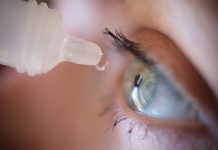
Imagine your body as a bustling city, with highways of blood vessels and a heart that keeps traffic moving.
Now, picture what happens when this city faces a drought: the once smoothly flowing traffic starts to slow, and everything needs to work harder to keep moving.
This scenario in our bodies is not so different when we’re dehydrated. Dehydration, a condition where our bodies don’t have enough water to carry out normal functions, can lead to an unexpected issue: high blood pressure, or hypertension.
This connection, often overlooked, reveals the importance of staying hydrated for our heart’s health.
At first glance, high blood pressure might seem more related to diet, exercise, and genetics than to how much water we drink.
High blood pressure occurs when the force of blood against the walls of our blood vessels is consistently too high, which can damage the heart over time.
On the other hand, dehydration happens when we lose more fluids than we take in, causing our body to scramble to maintain enough blood volume to function. The link between these two conditions lies in how our body responds to dehydration.
When we don’t drink enough water, our body kicks into conservation mode. It starts to hold onto sodium, a natural reaction to retain water, which can increase blood volume.
However, more sodium in our bloodstream can stiffen blood vessels, making it harder for them to relax and leading to higher blood pressure.
Additionally, our body releases a hormone called vasopressin when dehydrated, which causes blood vessels to narrow, further increasing blood pressure.
Research has begun to shine a light on this connection. Studies have shown that even mild dehydration can have effects on blood pressure.
For instance, a study published in the European Journal of Nutrition found that dehydration significantly increases blood pressure in adults, pointing to the body’s effort to manage blood flow and maintain hydration levels as a key factor.
Another intriguing aspect of this relationship is how hydration impacts blood viscosity, or thickness. Dehydrated blood is thicker and moves more sluggishly through veins and arteries, requiring more force to push it along, thus elevating blood pressure.
This was highlighted in research where increased hydration was associated with lower blood viscosity and, consequently, lower blood pressure.
Understanding this link is crucial, especially considering how easily dehydration can be overlooked. Symptoms like thirst, dry mouth, and fatigue are early signs, but by the time we notice these, we may already be dehydrated.
For individuals with existing high blood pressure, staying well-hydrated is even more important. Simple habits, such as drinking water throughout the day, can make a significant difference.
For those looking to manage or prevent high blood pressure, the advice is clear: don’t underestimate the power of water. Ensuring adequate hydration is a simple, yet effective strategy to support blood pressure health.
It’s about more than just quenching thirst; it’s about keeping the intricate system of highways in our body running smoothly.
In conclusion, as we uncover more about the body’s complex workings, the link between dehydration and high blood pressure highlights the importance of basic health practices.
Drinking enough water is a simple, accessible way to support our heart health and prevent the complications associated with hypertension. So, the next time you reach for a glass of water, remember, you’re not just quenching thirst—you’re helping your heart.
If you care about high blood pressure, please read studies that early time-restricted eating could help improve blood pressure, and natural coconut sugar could help reduce blood pressure and artery stiffness.
For more information about blood pressure, please see recent studies about added sugar in your diet linked to higher blood pressure, and results showing vitamin D could improve blood pressure in people with diabetes.
Copyright © 2024 Knowridge Science Report. All rights reserved.



